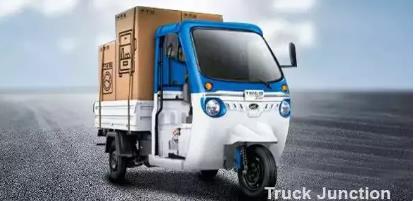Three-wheeler services have become a vital factor in India’s system of transportation, especially in urban and rural areas. Every single day, thousands of people depend on these mini three-wheeler rickshaws, such as auto-rickshaws or tuk-tuks, for affordable and fast travel. Fortunately, their significance goes beyond basic travelling. Additionally, they also offer an essential source of income for many individuals across the country. This blog will help you with the knowledge of how three-wheeler services have become a crucial source of employment, how technical development in this industry takes place, and the impact of socioeconomic on driver’s families.
Availability and Convenience:
Three-wheelers are famous for commuting passengers because of their capacity to build and help in congested traffic and small roadways. They are the accessible means of transportation for short distances, especially in remote areas where other means of transport are restricted. This comfort and convenience generate a wide number of passengers, ensuring an ongoing flow of money supply to the drivers.
Self-Employed and Entrepreneurs:
One of the most significant advantages of three-wheeler services is that they provide entrepreneurship and independent work to people. A lot of individuals especially from economically poor families, can get a three-wheeler either by purchasing or on rental. This, helps individuals to have small businesses, which makes them self-independent and free from the limitations of employment.
Agility and Revenue Potential:
Three-wheeler services help individuals with flexible working hours and locations. Drivers can choose their working hours based on their interests. This ability to adapt is particularly helpful for individuals who need to manage work and other home duties. Moreover, the potential revenue of three-wheeler services is highly dependent on the individual driver’s passion for how long they want to work.
Technological Developments:
The development of technology has had a major impact on India’s Three-wheeler transportation system. Customers are now able to communicate or connect with drivers by using mobile applications and online platforms. Many companies like Uber or Ola have generated app-based booking systems, helping customers to book quick transport which improves the general comfort and affordability of the three-wheelers. Such technology developments have speed up, decreased dependency on old techniques, and boosted driver’s potential for earnings.
Economic Empowerment:
Three-wheeler services give a path to economic development for many drivers. People can establish their small businesses and achieve financial independence by leasing or purchasing a three-wheeler. This industry helps drivers to earn more income and to take care of their families. Drivers can improve their living standards by expanding their businesses through hard work and determination.
Employment Development:
Besides drivers, the three-wheelers system generates job opportunities for different kinds of support systems as well. The growing number of three-wheelers helps in mechanics, auto workshops, spare parts, and even street vendors. This chain impacts provides a wider socioeconomic power, building local economies and promoting job development.
Social Impact:
The three-wheeler industry has mainly benefited underprivileged people; for example, women drivers, especially, have broken down all the barriers and overpowered gender norms by accepting earlier dominated by men industry. Nowadays, women have achieved financial independence and broke all the stereotypes notion, and they motivate other women to follow in their path by becoming auto-rickshaw drivers.
Favorable Infrastructure & Policies
In India, changes and improvements have taken place so many times in infrastructure as well as in transportation by advancing technology such as created Electric vehicles. The government has built charging stations such as commercial hubs, residential areas, and transportation centers for both private and public sectors. Not only this but the government has also announced projects like (The Faster Adoption and Manufacturing of EVs) scheme, which main purpose is to create a national infrastructure charging system. Through various rules and regulations, the Indian government has implemented major steps to promote the adoption of Electric Vehicles (EVs), especially EV three-wheelers. Additionally, by 2030, the government has set seriously electrified targets, looking to make electric almost all parts of the country’s vehicles. These government steps can change the transportation system into an electric mode of transportation.
Conclusion:
In conclusion, the three-wheeler industry played an important role in the source of income for the economy. These industries benefit the country’s overall socioeconomic growth by providing affordable and cheap means of transport to many people in India. It will also help in generating jobs, promoting entrepreneurship, and empowering excluded individuals. As India develops and modernises with technology and advancements the significance of the three-wheeler industry will help many people’s livelihoods. These services educate individuals and uplift those who are marginalised such as women’s communities and support socioeconomic development along with financial advantages. Understanding the importance of the three-wheeler industry and providing help, for example, training process, and economic advantages, can boost their ability to live and can change many individual lives and their families.
